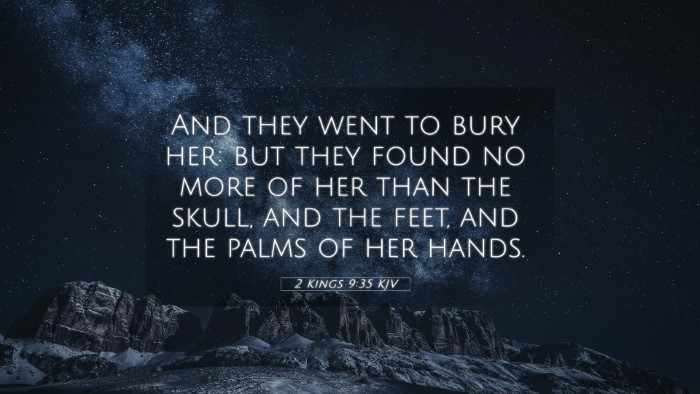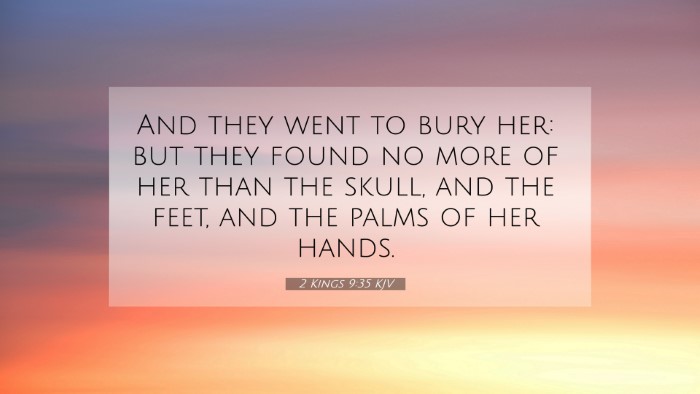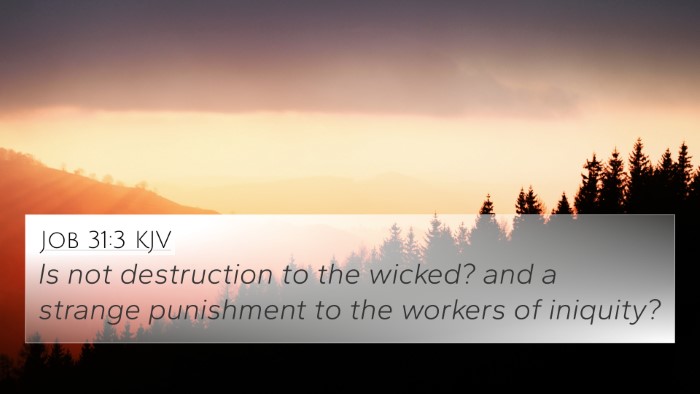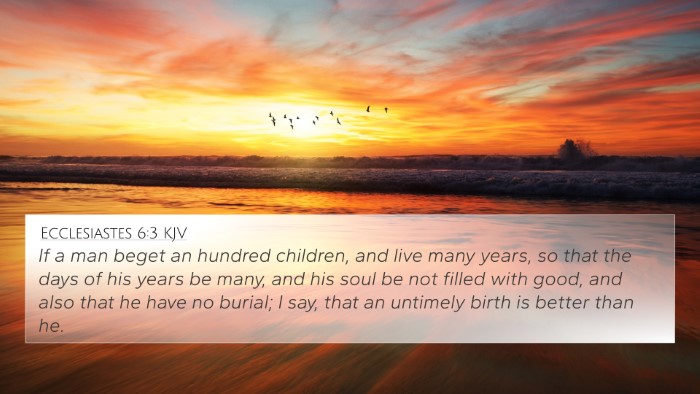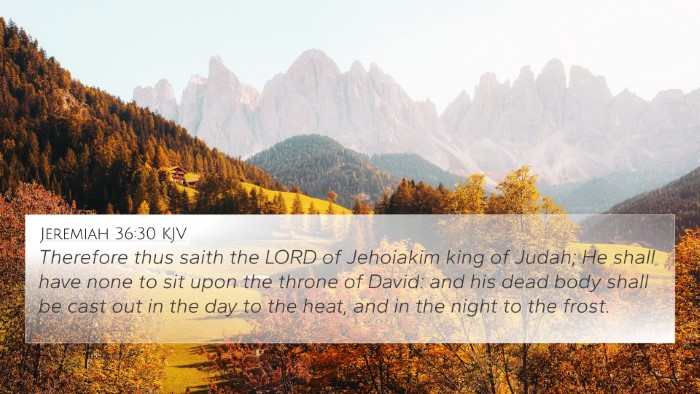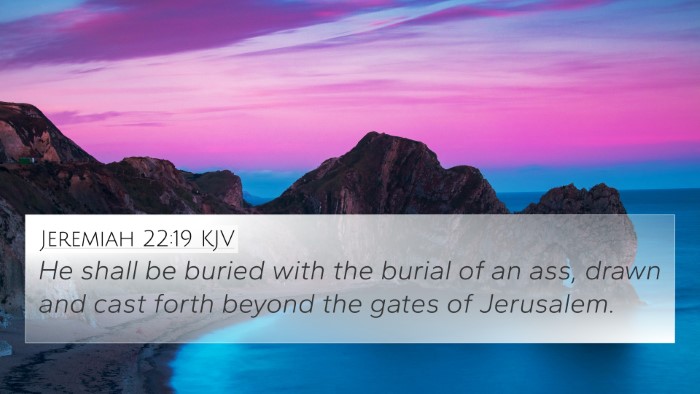Understanding 2 Kings 9:35
Verse: 2 Kings 9:35 - "So they went to bury her; but they found no more of her than the skull, and the feet, and the palms of her hands."
This verse depicts the gruesome end of Queen Jezebel, a figure notorious for her idolatry and persecution of God's prophets. As we explore the meaning and implications of this passage, we can draw insights from various public domain commentaries, including those by Matthew Henry, Albert Barnes, and Adam Clarke.
Commentary Insights
-
Matthew Henry:
Henry highlights the symbolic nature of Jezebel’s death, emphasizing that her luxurious life ended in disgrace. It reflects God's judgment on her for her sins against Him and Israel, notably her part in idolatry and the murders of the Lord's prophets.
-
Albert Barnes:
Barnes notes the dismemberment of Jezebel’s body, indicating God's complete judgment against her. The omission of her body signifies that she was unworthy of a proper burial, which was a severe dishonor in ancient Israelite culture.
-
Adam Clarke:
Clarke connects this passage to the prophetic pronouncements against Jezebel. He stresses that her gruesome fate fulfilled Elijah's prophecy, serving as a warning to others who would lead Israel astray.
Thematic Connections
This verse is not an isolated passage; it can be seen as a part of a broader narrative about divine justice and retribution. The themes of judgment, disgrace, and the consequences of wickedness run throughout the scriptures.
Bible Verse Cross-References
- 1 Kings 21:25 - Highlights Jezebel's manipulation in the murder of Naboth.
- 2 Kings 9:7 - God's command to destroy the house of Ahab, connecting Jezebel's actions to divine judgment.
- 2 Kings 9:30-33 - Jezebel's attempted seduction of Jehu, leading to her ultimate demise.
- Revelation 2:20 - Refers to Jezebel as an archetype for false prophets and immorality within the church.
- 2 Samuel 22:28 - Discusses God's treatment of the haughty and the proud, like Jezebel.
- Isaiah 47:1-3 - The fall of Babylon is paralleled to Jezebel's disgrace for pride and idolatry.
- Matthew 23:37 - Jesus lamenting over Jerusalem, echoing the theme of judgment against those who oppose God's ways.
Inter-Biblical Dialogue
The story of Jezebel invites a broader examination of similar themes in both the Old and New Testaments. It is crucial to recognize how these narratives interconnect to reveal God's character and the nature of sin.
Links Between Biblical Texts
By engaging in scriptural cross-referencing, one can identify the connections between various biblical narratives. For instance, the themes emergent in Jezebel's story resonate with the prescriptive teachings of Jesus and the warnings found in the epistles, particularly regarding false teachings and moral corruption.
Comparative Bible Verse Analysis
Understanding Jezebel's fate in 2 Kings 9:35 requires a comparative analysis of other significant biblical figures who met similar judgments due to their rebellion against God. The patterns of retaliation against disobedience can be found in:
- King Saul - 1 Samuel 28:19: Consequences of disobedience to God's commandments.
- Haman - Esther 7:10: His pride and malice leading to his downfall.
- Herod Agrippa - Acts 12:23: Struck down for his pride and refusal to give glory to God.
Conclusion
The verse 2 Kings 9:35 serves as a profound reminder of the consequences of a life lived in rebellion against God. Through various commentaries, we learn that this account is not merely historical but serves as a moral lesson across scriptures. Utilizing Bible concordance and cross-reference tools can enhance the study of themes and draw deeper connections between Biblical texts.

